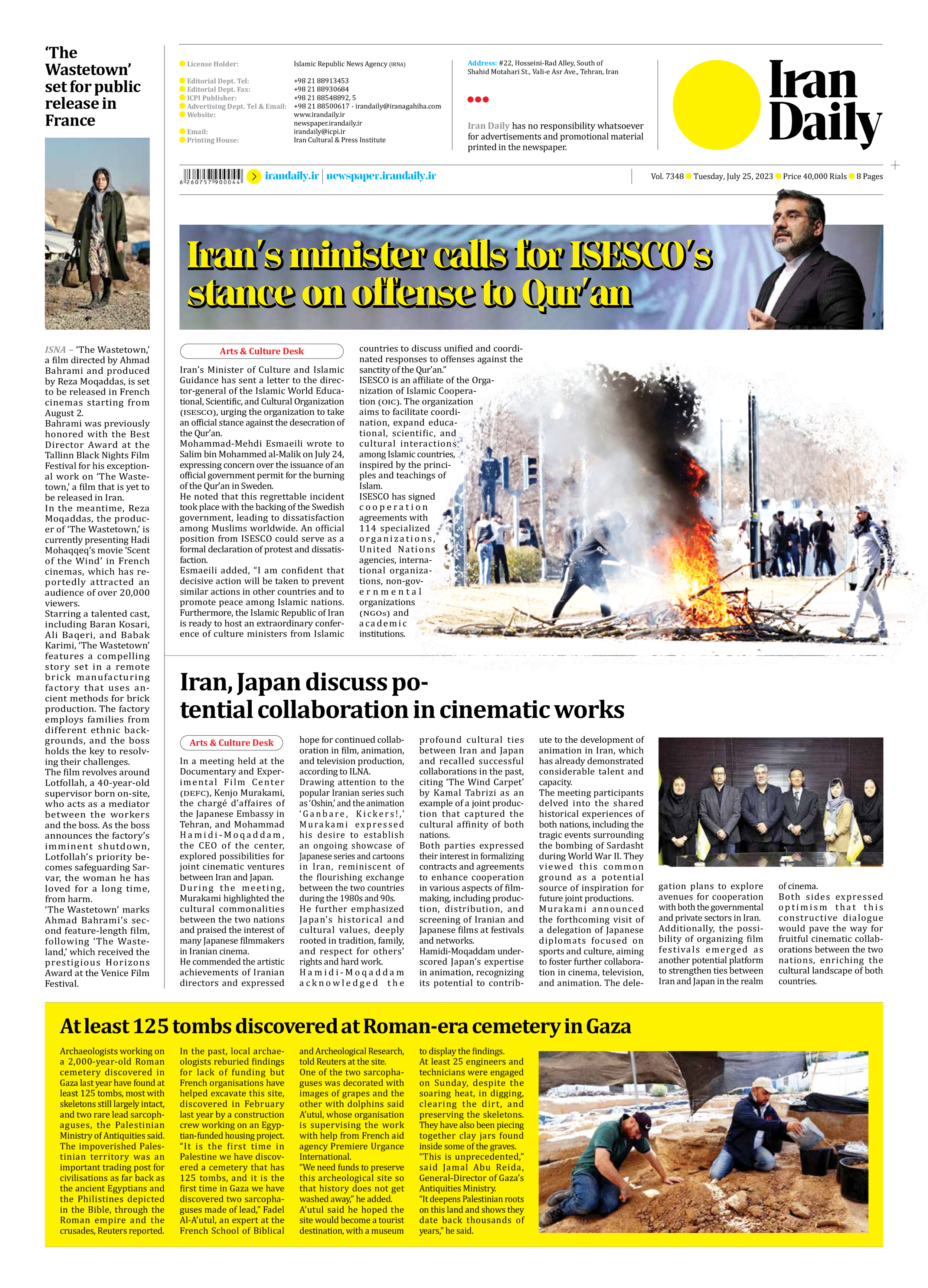
At least 125 tombs discovered at Roman-era cemetery in Gaza
Archaeologists working on a 2,000-year-old Roman cemetery discovered in Gaza last year have found at least 125 tombs, most with skeletons still largely intact, and two rare lead sarcophaguses, the Palestinian Ministry of Antiquities said.
The impoverished Palestinian territory was an important trading post for civilisations as far back as the ancient Egyptians and the Philistines depicted in the Bible, through the Roman empire and the crusades, Reuters reported.
In the past, local archaeologists reburied findings for lack of funding but French organisations have helped excavate this site, discovered in February last year by a construction crew working on an Egyptian-funded housing project.
“It is the first time in Palestine we have discovered a cemetery that has 125 tombs, and it is the first time in Gaza we have discovered two sarcophaguses made of lead,” Fadel Al-A’utul, an expert at the French School of Biblical and Archeological Research, told Reuters at the site.
One of the two sarcophaguses was decorated with images of grapes and the other with dolphins said A’utul, whose organisation is supervising the work with help from French aid agency Premiere Urgance International.
“We need funds to preserve this archeological site so that history does not get washed away,” he added.
A’utul said he hoped the site would become a tourist destination, with a museum to display the findings.
At least 25 engineers and technicians were engaged on Sunday, despite the soaring heat, in digging, clearing the dirt, and preserving the skeletons. They have also been piecing together clay jars found inside some of the graves.
“This is unprecedented,” said Jamal Abu Reida, General-Director of Gaza’s Antiquities Ministry.
“It deepens Palestinian roots on this land and shows they date back thousands of years,” he said.







